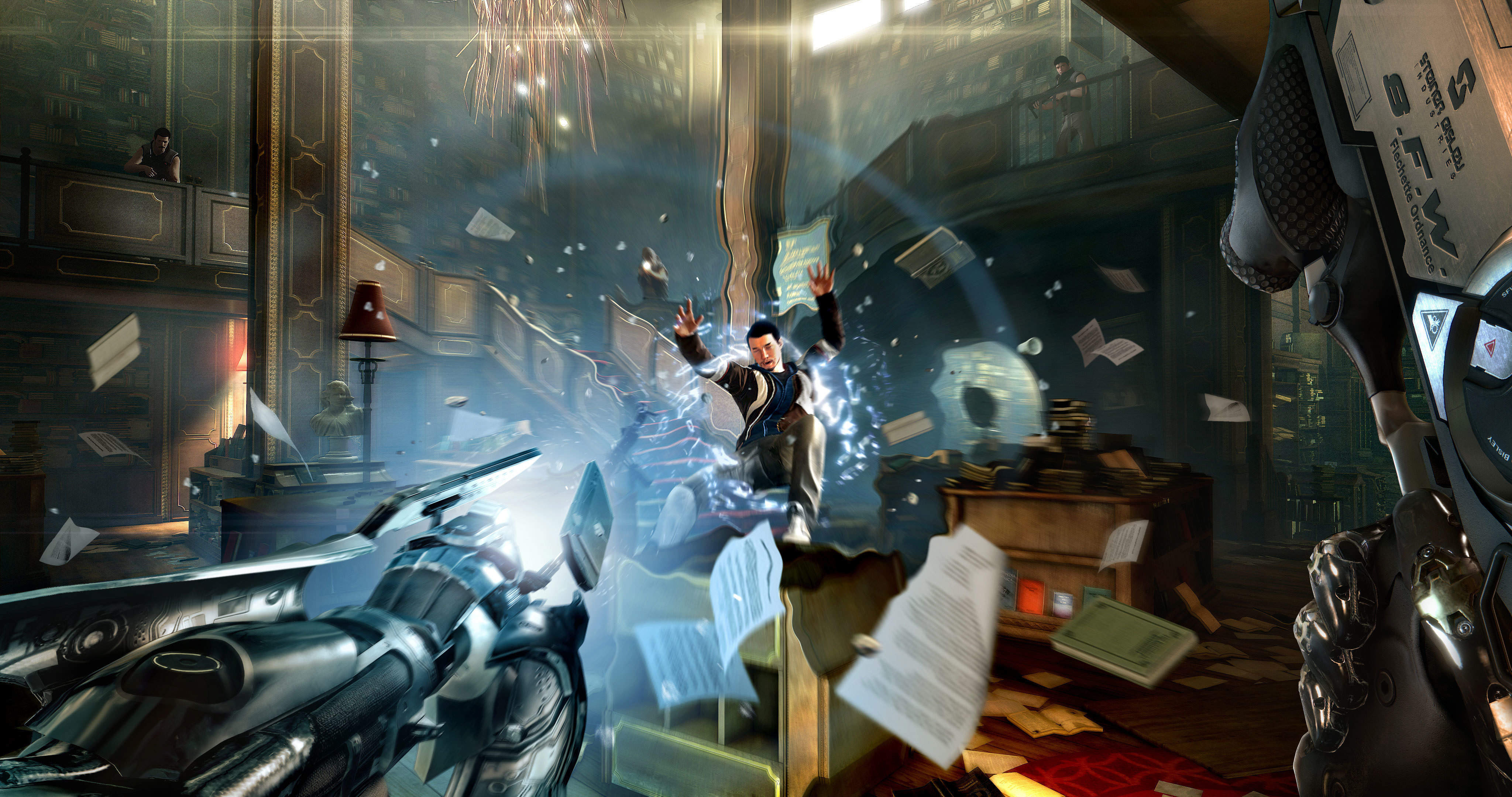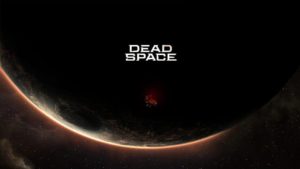
Note: Minor spoilers for Deus Ex games.
The Deus Ex franchise has a long history with several high and low points. The original title, which launched back in 2000, features in many gamer’s top games of all time lists, and could be described as a cult classic. Set in a cyberpunk world full of conspiracy, cool technology, power struggles and shifting loyalties, the world was a fantastic set piece for an action-RPG. Players took the role of JC Denton, an agent working for The United Nations Anti-Terrorist Coalition who is heavily augmented, essentially meaning he is a cyborg with technology that gives him superhuman abilities. Denton becomes wrapped up (along with his brother Paul, also augmented) in conspiracy, deception, and has to make several moral choices throughout the story. The biggest standouts of the game were its non-linear levels, different methods of approaching missions, and the various choices you could make that would affect the outcome of the story. The expansive levels gave numerous ways to traverse the environment and reach your goal. You could take a stealthy approach, an aggressive one, or something in between. This style of gameplay became a hallmark of the series.
A few years later, we had the sequel, Invisible War. I never ended up playing this entry, but everyone who is familiar with the franchise is familiar with Invisible War’s reputation. Generally speaking, it’s not considered a bad game overall, but more of a misstep or disappointment. The biggest gripe was the feeling of the game being dumbed-down, removing many of the features that were considered key aspects of the original. Skills were removed, augmentations were less interesting, and the universal ammo system irked a number of players. Invisible War could be considered not to be a bad game, but a bad Deus Ex game.
The franchise was not cancelled, but it would be several years before the next installment, 2011’s Human Revolution. A prequel title, Human Revolution is set several years before the first game, and at the core of it’s narrative is the early development of augmentation technology that features in all the games, and the problems that it is causing throughout society. The technology is shown by the companies that develop it as being of great benefit for society, such as for those who have missing or damaged limbs who can now operate freely, or to simply allow humans to do and accomplish more with their lives. However, the technology also furthers the divide between the rich and poor in society, with those less well off being unable to compete with those who can enhance their physical and mental capabilities through augmentation technology. Use of augmentations also requires regular doses of a drug called Neuropozyne, which is both expensive and highly addictive. The main protagonist, another cyborg, is Adam Jensen, who is a great character for a number of reasons. Firstly, he has fucking swords in his arms like a cyborg Baraka from Mortal Kombat. Secondly, Jensen works for a large augmentation company, despite being skeptical about the technology and its applications. After an attack on the facility he works at, Adam is forced to be heavily augmented due to suffering major injuries. A lot of people would dismiss Adam as another bland, gruff-voiced protagonist, but actually playing the game reveals the depth of his character. Adam is suffering in the aftermath of the attack, and has been augmented against his will, with his body struggling to adjust to the sudden changes. Adam is forced to uncover details of the attack, whilst all the while being skeptical of augmentations, and of the intentions of the boss he is working for.
Human Revolution was well-received and is considered a successful reboot of the series, with only a few notable issues, mainly the poorly-implemented boss fights. The game took a slightly different approach in terms of it’s gameplay, having a more action oriented combat system with cover mechanics, but having been launched over a decade after the original, some changes were hardly surprising. Critically, the game managed to keep the core of the Deus Ex style with open ended levels and various gameplay options but utilising more up to date gameplay mechanics, and demonstrated that there was a market for both future Deus Ex titles and action-RPGs.
Following Human Revolution was the latest installment in the series, Mankind Divided. Mechanically, the game was very similar to it’s predecessor, and kept Jensen as the main protagonist. Mankind Divided is considered another misstep in the series, and sold poorly, but for different reasons than Invisible War. How could Mankind Divided be considered a failure despite how similar it is to Human Revolution, which was a success? The fault didn’t lie with the gameplay itself, and Mankind Divided has smoother combat mechanics and both more weapons and augmentations to play with than its predecessor. The story is generally considered to be weaker this time around, with more unresolved plot threads and characters who were less fleshed out, as well as a lacklustre ending.
The main issue was with how the game was marketed, rather than with the game itself. Tacked onto the game was the disastrous Augment Your Pre-Order system, which had bonuses that would unlock for everyone who pre-ordered the game if certain pre-order targets were met. The target figures were not disclosed, and the bonuses included bonus mission content and an early release. This system was later dropped due to community backlash, but the damage had already been done. Additionally, the game included micro-transactions for in-game items, which in a singleplayer title was hardly likely to impress anyone. Combined with some performance and bug issues, Mankind Divided felt like an unfinished project designed to milk the playerbase for as much money as possible, rather than being a lovingly crafted RPG experience.
So what does this all mean? In order of release, we have a beloved classic RPG, a sequel that probably gets more hate than it deserves for being a slight misfire, a prequel reboot that demonstrated there was still demand for Deus Ex titles that also showed the formula still worked using more modern game mechanics, and a follow-up title that was mechanically superior, but ended up failing due to a series of poor decisions regarding its release. Mankind Divided could, and should have been a success. Eidos and Square Enix know what works, and what doesn’t. They have the formula for what could be an amazing action-RPG, and a fanbase that want to see another title on the same level as the original.
Final point: yes, I did forget about Deus Ex: The Fall, but then again, so did everyone else.




